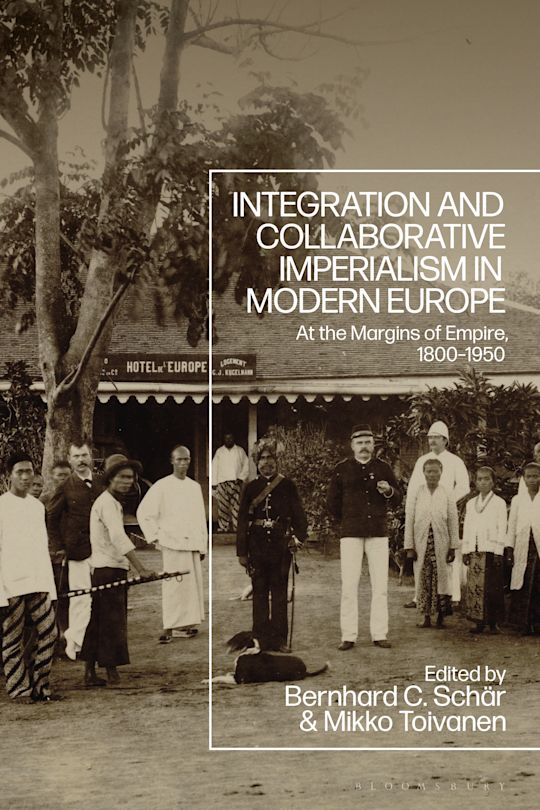This open access book provides a thought-provoking new perspective on European imperialism in the 19th and 20th centuries. It does so by inquiring how smaller European powers and regions at the margins of the continent integrated into a globally interconnected world that was heavily shaped by their more powerful European neighbours. Case studies on Nordic, Eastern and Central European regions uncover how countries such as Sweden, Serbia or Switzerland became imperial, despite having no or only short-lived overseas colonies of their own. By uncovering the structures and networks that enabled these regions to actively participate in and benefit from the imperial world around them, these case studies also reveal a crucial dynamic of European imperialism that has rarely been analysed in extant historiographies of Empire and Europe: the fact that 19th-century European imperial subjugation of almost the entire planet was driven not only by undeniable rivalry and competition among the greater European powers, but also necessarily depended on collaboration and exchanges across national and imperial boundaries.
The ebook editions of this book are available open access under a CC BY-NC-ND 4.0 licence on bloomsburycollections.com. Open access was funded by the Swiss National Science Foundation (SNSF).
free download: here.
__________________________________________________________________________________________
Table of Contents
List of Contributors
Introduction – Expansion alongside integration: a new history of imperial Europe? Bernhard C. Schär, University of Lausanne, Switzerland & Mikko Toivanen, Freie Universität Berlin, Germany
European entanglements in overseas colonial networks across imperial borders
1. Preacher, trader, soldier, spy: studying transimperial individuals through their occupational roles, John Hennessey, Lund University, Sweden
2. Small numbers – lasting impact. ‘Marginal’ Europeans in Brazil’s slave-based economy, 1808-1888, André Nicacio Lima, Brazil
3. A villa for the world: prefabricated houses, national romanticism and Norwegian colonial entanglements, Tonje Haugland Sørensen, University of Bergen, Norway
4. Swiss colonial business in the Transvaal: the involvement of the DuBois family, watchmakers in Neuchâtel (late nineteenth century) Fabio Rossinelli, University of Lausanne, Switzerland
5. Imperial entanglements: Poles and Serbs in colonial East and Southeast Asia in the long nineteenth century, Tomasz Ewertowski, Shanghai International Studies University, China
Constructing and negotiating European identities in a colonial world order
6. Three days from civilization: transnational scientific imagination and nineteenth-century Iceland, Kristín Loftsdóttir, University of Iceland, Iceland
7. Orientalist knowledge from the margins: the colonial entanglement of nineteenth-century Hungarian research on Inner Asia Szabolcs László, Institute of History, Hungary
8. Collections of a rural empire: museums, colonial ethnography, and the European countryside, Corinne Geering, Leibniz Institute for the History and Culture of Eastern Europe, Germany
9. Traveling the Arctic margins: promoting and experiencing Petsamo as a colonial frontier, Janne Lahti, University of Helsinki, Finland
10. Collective colonialism for European integration: the rise of the Paneuropean movement in post-imperial Austria, Lucile Dreidemy,University of Vienna, Austria & Eric Burton,University of Innsbruck, Austria
Afterword, Manuela Boatca, University of Freiburg, Germany
Bibliography
Index

